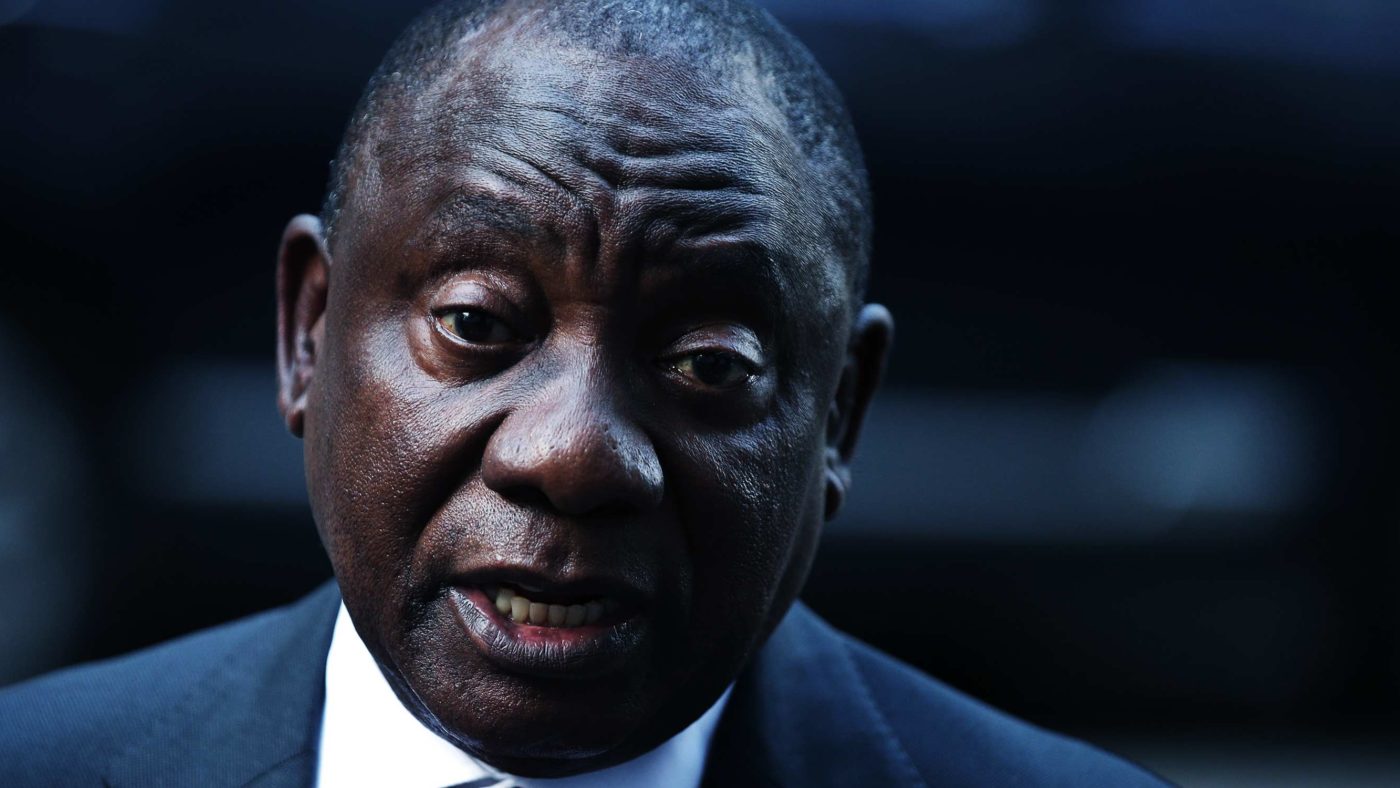In 1986, a well-known African-American economist travelled to South Africa for a conference on the role of business in helping to overcome racial divisions in that country. Three years later, Professor Walter E. Williams of George Mason University published a book titled South Africa’s War against Capitalism.
Racial discrimination in the country, he wrote, was not a result of free enterprise. Instead, it was a consequence of the government’s attempt to protect white workers from their black competitors. “If capitalism can be described as the unfettered operation of the market in the allocation of society’s scarce resources,” he concluded, “then apartheid is the antithesis of capitalism.”
Today, the South African government is, yet again, undermining the country’s market economy and racial tensions are on the rise. To save themselves from economic collapse and rising racial tension, South Africans of all colours should read William’s sage words and, maybe, invite him to visit South Africa once more.
In 1989, when Williams’ book came out, South Africa was still run by the white-minority government. Both the African National Congress (ANC) and the South African Communist Party (SACP) were banned. Their leaders were either in exile or, like Nelson Mandela, in prison. Communism was very much alive and engaged in an ideological struggle against free nations throughout the world. South Africa, meanwhile, faced international sanctions and opprobrium.
To ease the economic and political consequences of isolation, the government portrayed South Africa as a Western bulwark against communism. The communist threat in Southern Africa was real enough, but that did not make the South Africa a free country. The black majority lacked political representation, while the economy was over-regulated and increasingly dominated by state-owned enterprises.
South Africa’s racial history is, to put it mildly, complicated. In some provinces of what became the Union of South Africa in 1910, Africans lacked most of the basic political and economic rights. In contrast to Transvaal and Orange Free State, Africans in the Cape Province enjoyed greater equality with whites, including the right to vote.
Race relations in the country deteriorated, rather than improved, throughout the 20th century. That happened for many reasons, including, most obviously, white racism and, less obviously, the catastrophic performance of newly-independent African states to South Africa’s north.
Among the reasons for the deterioration of race relations in South Africa was the now largely forgotten “problem” of economic competition. As South Africa urbanised and industrialised, African workers poured to the cities and started competing with white workers for lucrative jobs in the mining sector. On average, black labourers were willing to work for lower wages than white labourers and South Africa’s industrialists were only too happy to cut their costs by hiring Africans.
As blacks displaced whites, white resentment grew. Egged on by the SACP, which catered to the needs of the white proletariat, white workers took to the streets under a banner that read, “Workers of the World Unite for a White South Africa.”
The so-called Rand Rebellion of 1922 spread like a wildfire, threatening the survival of the government. General Jan Smuts, the Prime Minister, had to resort to using 20,000 troops, artillery units and, even, aerial bombardment, in order to survive.
That said, the Rand Rebellion succeeded in its primary objective. The government was forced to institute the so-called “Colour Bar,” which reserved certain jobs for “Europeans only,” thus protecting the white workers from black competition.
With time, the Colour Bar expanded into a large body of laws and regulations that were intended to re-engineer the South African society along racial lines. That system of laws and regulations came to be known as apartheid.
A quarter century after the end of apartheid, South Africa’s economy is once-again groaning under a vast and complex system of racial quotas and preferences, which, this time around, favour the black majority over the white minority. The government composed of the ANC and SACP (which now caters to the black, rather than white proletariat), explicitly rejects meritorious advancement in favour of “racial representativity” in all aspects of political and economic life.
The government’s statist economic policies, incompetence and venality have resulted in low growth, ballooning debt, higher taxes and, worst of all, an explosion in unemployment. The worsening economic conditions have, in turn, created fertile ground for Marxist ideologues in both parties, who seem to be on course to commit economic suicide by expropriating private property without compensation.
In South Africa’s War against Capitalism, Williams observed that “it is readily apparent to any observer that the mere elimination of colonialism was not a sufficient guarantee for the personal liberty and higher standard of living hoped for by the African common man and woman … the experiences of post-colonialism should serve as a caution for post-apartheid South Africa. Compassion requires that we seriously entertain questions and thoughts about what kind of system is going to replace apartheid. Will such a system promote the kind of liberties and standards of living hoped for by both South African and Western opponents of apartheid?”
Looking back, it must be admitted that neither South Africa’s post-apartheid government, nor the plethora of Western do-gooders, including governments and NGOs, heeded Williams’ warnings. Thirty-two years after Williams’ trip to South Africa, the country teeters on the brink of economic destruction and possible wide-spread political violence. It is now more important than ever for South Africa to look to free enterprise as a solution to its problems.


